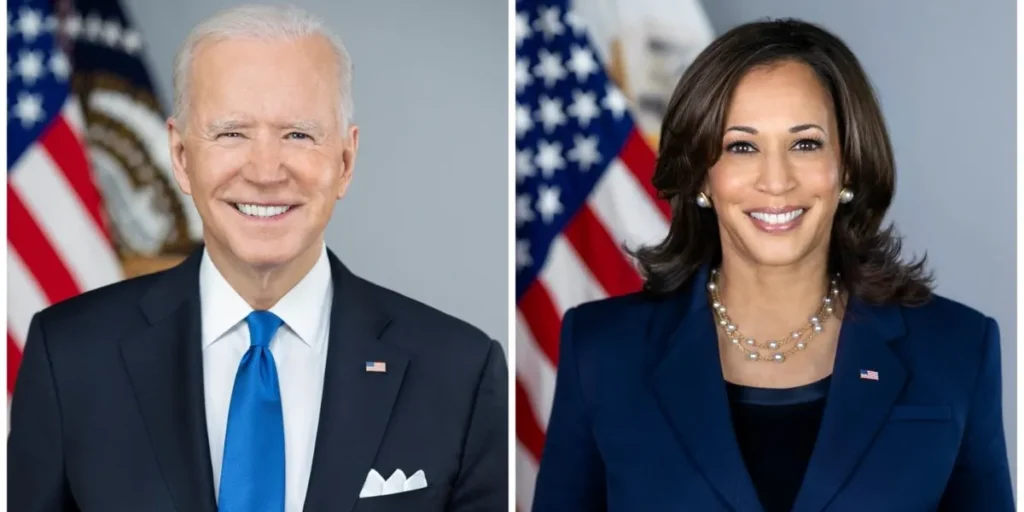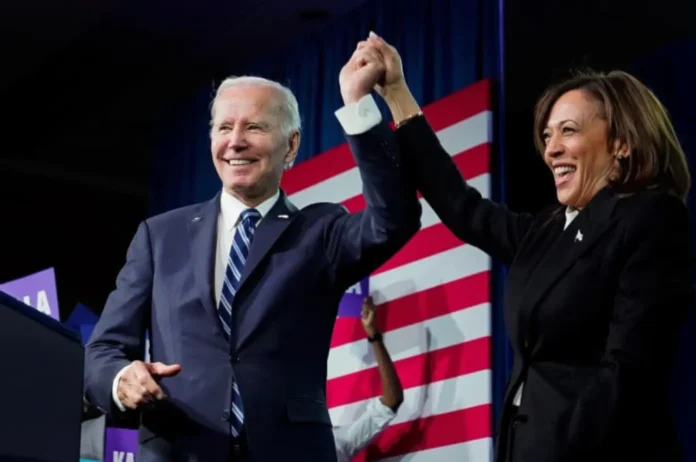In a dramatic shift in U.S. politics, Joe Biden has announced his withdrawal from the 2024 presidential race. This pivotal decision, revealed on July 21, 2024, has led to the endorsement of Vice President Kamala Harris as the Democratic Party’s nominee. This blog will explore the reasons behind Biden’s decision, the reactions from political figures, and what this means for the 2024 election.
The Announcement: Joe Biden’s Decision to Step Down
On July 21, 2024, Joe Biden took to X (formerly Twitter) to announce that he would not be seeking reelection. Biden explained that, despite his intention to run, stepping aside was in the best interest of both his party and the nation. He pledged to focus on his duties as President until January 2025.
In his statement, Biden wrote, “It has been the greatest honor of my life to serve as your President. While I had planned to seek reelection, I believe it’s best for the country and the party for me to step down and fulfill my remaining term.”
This announcement marks a significant moment in U.S. political history. Biden’s decision to withdraw came after mounting scrutiny and pressure from various quarters. Despite his initial plans to continue, Biden acknowledged that the situation required a reassessment of his role and future.
Kamala Harris: A Historic Nomination

Shortly after Biden‘s announcement, he endorsed Vice President Kamala Harris as his successor. This endorsement is historic, as Harris is set to become the first Black woman nominated for President by a major U.S. party.
Biden remarked, “My first and best decision as President was selecting Kamala Harris as my Vice President. I am confident in her ability to lead and I urge all Democrats to support her.”
Harris’s nomination represents a landmark moment in American politics. As the first Black woman to be nominated for President, her candidacy carries immense significance and potential to inspire a new wave of political engagement and leadership.
Reasons Behind Biden’s Withdrawal
Several factors influenced Biden‘s decision to withdraw:
- Age and Health Concerns:
- At 81, Biden faced increasing scrutiny over his age and health. Concerns about his ability to effectively serve another term were heightened following a recent debate with former President Donald Trump. During the debate, Biden’s performance raised questions about his fitness for office, leading to intensified scrutiny.
- Critics pointed to moments where Biden struggled to maintain coherence and clarity, further fueling concerns about his suitability for a second term.
- Pressure from the Democratic Party:
- Internal party pressures played a significant role in Biden’s decision. Democratic leaders and members expressed growing concerns about his ability to win against Trump. There was a belief within the party that a different candidate might have a better chance of securing victory in the upcoming election.
- The pressure for Biden to step down was compounded by discussions and debates within the party about the best strategy for the 2024 race.
- Focus on Presidential Duties:
- Biden emphasized his desire to concentrate on his responsibilities as President rather than being preoccupied with a reelection campaign. He expressed a commitment to fulfilling his duties and managing the country effectively during the remainder of his term.
- By stepping down from the race, Biden aimed to avoid the distractions and demands of a campaign, allowing him to focus on addressing pressing national issues.
Political Reactions and Implications
Joe Biden‘s decision has triggered a wide array of reactions from political figures and commentators:
- Kamala Harris:
- Vice President Kamala Harris responded to Biden’s endorsement with praise and gratitude. She described Biden’s decision as a “selfless and patriotic act” and pledged to work diligently to earn and win the nomination.
- Harris’s response highlights her readiness to take on the role of the Democratic nominee and her commitment to continuing Biden‘s policies and vision.
- Barack Obama:
- Former President Barack Obama, a highly influential figure within the Democratic Party, commended Biden for his decision. Obama acknowledged the significance of Biden’s withdrawal but also cautioned about the challenges that lie ahead for the party.
- Obama’s endorsement and support for Harris will be crucial in uniting the party and rallying support around the new nominee.
- Donald Trump:
- Former President Donald Trump reacted to Biden’s withdrawal with a series of posts on his Truth Social network. Trump criticized Biden’s fitness for office and shifted his focus to Harris as his new opponent.
- Trump’s comments underscore his campaign strategy of highlighting the perceived weaknesses of his opponents and positioning himself as the alternative.
- Nancy Pelosi:
- House Speaker Nancy Pelosi has taken a cautious approach, refraining from immediately endorsing Harris. Pelosi’s stance reflects the need for a thorough and fair primary process, ensuring that all potential candidates have an opportunity to compete.
- Pelosi’s position highlights the ongoing dynamics within the Democratic Party as it navigates the transition from Biden to Harris.
Harris’s Candidacy: New Dynamics for the 2024 Election
Joe Biden‘s withdrawal and Kamala Harris’s nomination have introduced several new dynamics to the 2024 presidential election:
- Unification Around Harris:
- Biden’s endorsement aims to unify the Democratic Party behind Harris’s candidacy. As the sitting Vice President, Harris benefits from Biden’s support and has the opportunity to consolidate the party’s base.
- The endorsement is designed to streamline the nomination process and focus Democratic resources and efforts on the general election.
- Potential Primary Challenges:
- Despite Biden’s endorsement, Harris may still face challenges from other Democratic contenders. Figures such as California Governor Gavin Newsom and Senator Bernie Sanders have significant followings and could potentially contest Harris’s nomination.
- The outcome of these primary challenges will shape the final Democratic candidate and influence the party’s strategy for the general election.
- Fundraising Boost:
- Harris’s candidacy has already received a significant boost in fundraising. The Democratic fundraising group ActBlue reported that Harris received $27.5 million in small-donor contributions within five hours of Biden’s announcement.
- This influx of funds will be crucial for Harris’s campaign, providing the necessary resources to compete effectively in the general election.
- Historical Significance:
- Harris’s candidacy represents a historic milestone for the Democratic Party. As the first Black and South Asian woman to be nominated for President, Harris’s campaign has the potential to mobilize and energize key demographic groups, including women, minorities, and young voters.
- This historic aspect of her candidacy could play a significant role in shaping voter enthusiasm and turnout.
Conclusion
Joe Biden‘s decision to withdraw from the 2024 presidential race and endorse Kamala Harris as the Democratic nominee marks a pivotal moment in U.S. politics. This move has far-reaching implications for the Democratic Party and the broader electoral landscape. As Harris steps into the spotlight, her candidacy represents a historic milestone and a new chapter for the Democratic Party. The coming months will be critical as the party rallies behind Harris and prepares for a high-stakes general election.



